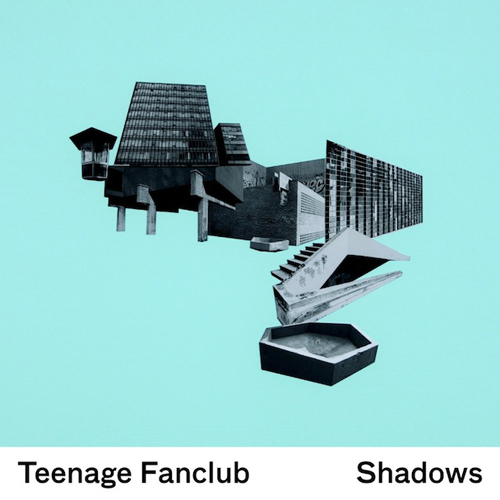Bands that achieve the longevity of Scotland’s Teenage Fanclub should do so by maintaining a level of consistency whilst also satisfying the artistic desire to push boundaries. In doing so, they will be able to meet the expectations of their fans with the hope of making new ones as well. Several different paths have successfully been taken to this end. Belle and Sebastian thickened up their instrumentation without making any vast changes to their sound. Radiohead began taking an increasingly experimental approach to each new album. They challenged their listeners, but never wavered in terms of quality. On Shadows, Teenage Fanclub takes neither route. Instead of exploring altogether new genres of music or expanding upon their earlier sound, they have gone the way of recent Wilco albums and matured with age in the most boring sense of the word. By all but throwing away any sense of edginess, (they must have forgotten writing “Satan”), they strip themselves of the raw energy so loved from their early material and resort to crafting an album of perfectly decent, but rarely arresting material. Where a superior album by a once great band could have existed lays Shadows: another album to throw onto the increasingly large pile of good-but-not-great efforts by jangly indie pop bands. The songs are pleasant enough and mostly well written, but almost uniformly hollow, static, and worst of all, boring.
If an album as straightforward and earnest as Shadows is to succeed, the standard for songcraft needs to be higher. Though there are a few gems in the bunch, the rest of the album is simply a sequence of interchangeable tracks that fail to grow. “Baby Lee” is a cute and cleverly worded love song reminiscent of Blitzen Trapper’s recent foray into sunny ’60s/’70s harmonies, but after the three-and-a-half minute mark passes, one realizes that it will never build on its early promise. “Dark Clouds” is similarly damaged. A perfectly serviceable piano line and vocal melody are never utilized to their full effect and so the song never evolves beyond being a pleasant toe-tapper. “The Fall” taunts with an excellent second half, but besides the odd evocation of Manic Street Preachers’ James Dean Bradfield on the vocals, it never surprises nor explodes in the way it ought to. These comments are not meant to suggest that all songs must have loud or raucous sections. Other collectives such as Low, Yo La Tengo, and even Broken Social Scene have had long and successful careers with withdrawn instrumentals and semi-precious vocalists by diversifying the instrumentation and style of their songs within each album. Shadows fails to do so.
Shadows rarely attempts true grandeur and so its best tracks succeed, quite simply, on the fusion of a few memorable elements. Album opener, “Sometimes I Don’t Need To Believe in Anything” actually manages to go somewhere, recalling the best works of bands such as Belle and Sebastian, Stars, and Camera Obscura. The verse’s use of consistent major-7th chords builds the necessary tension to introduce a rush of Avalanches-esque horns and keyboard, the best string and drum work on the album total, and finally a chorus of “ba ba ba”s that would make Sufjan Stevens smirk. Though its joy of an opener is never matched, Shadows does have a few remaining highlights. “When I Still Have Thee,” is a gloriously catchy folk anthem that only suffers from being a bit long. “Shock and Awe” features a much needed layer of electric guitar put on top of some of the catchiest melodies on the album. Finally, as if to suggest that they might have an extra idea being saved for their next album, closer “Today Never Ends,” goes into full-on Yo La Tengo mode. The song burns slowly and though a massive climax never arrives, the Fanclub maintains complete control in dictating a series of minor peaks and valleys which would make such an ending feel unwarranted and unnecessary.
Had Shadows been released at a different time, maybe it would have laid a firmer impression. 2010 has been a year over-saturated with similar sounding bands and Shadows doesn’t quite showcase what it would take to make Teenage Fanclub stick out in that pack. The album ranges from mediocre to good and on only one occasion, excellent. Too often, the tracks flow from one to the next without ever sounding much different than what came before it and the lyrics are mostly devoted to discussing love and discovery in ways done a thousand times before. Starting with its best song allows for a good first impression, but the disappointment that follows makes it a trying task to listen to the album in full. On Shadows, risks aren’t taken, the songs almost uniformly go nowhere, and the energy of the Fanclub’s classic Bandwagonesque is almost nowhere to be found. Nonetheless, no track on the album dips below listenable and so Shadows works quite well as background music or on a song by song basis. Kurt Cobain was quoted as saying that Teenage Fanclub was the best band in the world. Were he alive today, I doubt that he would or could attempt to make the same claim.

